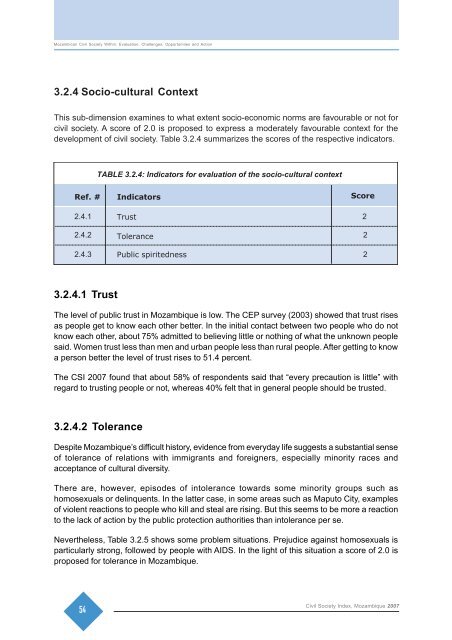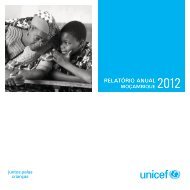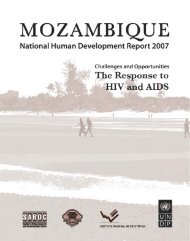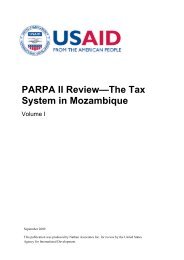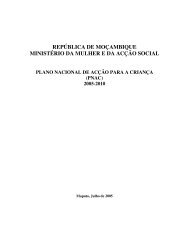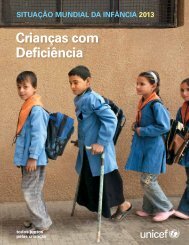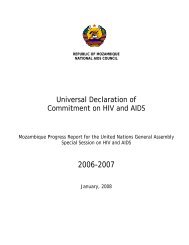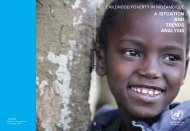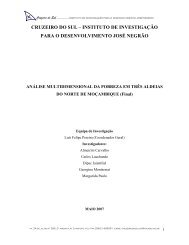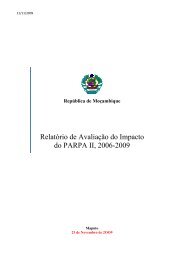Mozambican Civil Society Within: - UNICEF Mozambique - Home page
Mozambican Civil Society Within: - UNICEF Mozambique - Home page
Mozambican Civil Society Within: - UNICEF Mozambique - Home page
Create successful ePaper yourself
Turn your PDF publications into a flip-book with our unique Google optimized e-Paper software.
<strong>Mozambican</strong> <strong>Civil</strong> <strong>Society</strong> <strong>Within</strong>: Evaluation, Challenges, Opportunities and Action<br />
3.2.4 Socio-cultural Context<br />
This sub-dimension examines to what extent socio-economic norms are favourable or not for<br />
civil society. A score of 2.0 is proposed to express a moderately favourable context for the<br />
development of civil society. Table 3.2.4 summarizes the scores of the respective indicators.<br />
TABLE 3.2.4: Indicators for evaluation of the socio-cultural context<br />
Ref. # Indicators Score<br />
2.4.1<br />
Trust<br />
2<br />
2.4.2 Tolerance<br />
2<br />
2.4.3 Public spiritedness<br />
2<br />
3.2.4.1 Trust<br />
The level of public trust in <strong>Mozambique</strong> is low. The CEP survey (2003) showed that trust rises<br />
as people get to know each other better. In the initial contact between two people who do not<br />
know each other, about 75% admitted to believing little or nothing of what the unknown people<br />
said. Women trust less than men and urban people less than rural people. After getting to know<br />
a person better the level of trust rises to 51.4 percent.<br />
The CSI 2007 found that about 58% of respondents said that “every precaution is little” with<br />
regard to trusting people or not, whereas 40% felt that in general people should be trusted.<br />
3.2.4.2 Tolerance<br />
Despite <strong>Mozambique</strong>’s difficult history, evidence from everyday life suggests a substantial sense<br />
of tolerance of relations with immigrants and foreigners, especially minority races and<br />
acceptance of cultural diversity.<br />
There are, however, episodes of intolerance towards some minority groups such as<br />
homosexuals or delinquents. In the latter case, in some areas such as Maputo City, examples<br />
of violent reactions to people who kill and steal are rising. But this seems to be more a reaction<br />
to the lack of action by the public protection authorities than intolerance per se.<br />
Nevertheless, Table 3.2.5 shows some problem situations. Prejudice against homosexuals is<br />
particularly strong, followed by people with AIDS. In the light of this situation a score of 2.0 is<br />
proposed for tolerance in <strong>Mozambique</strong>.<br />
54<br />
<strong>Civil</strong> <strong>Society</strong> Index, <strong>Mozambique</strong> 2007


